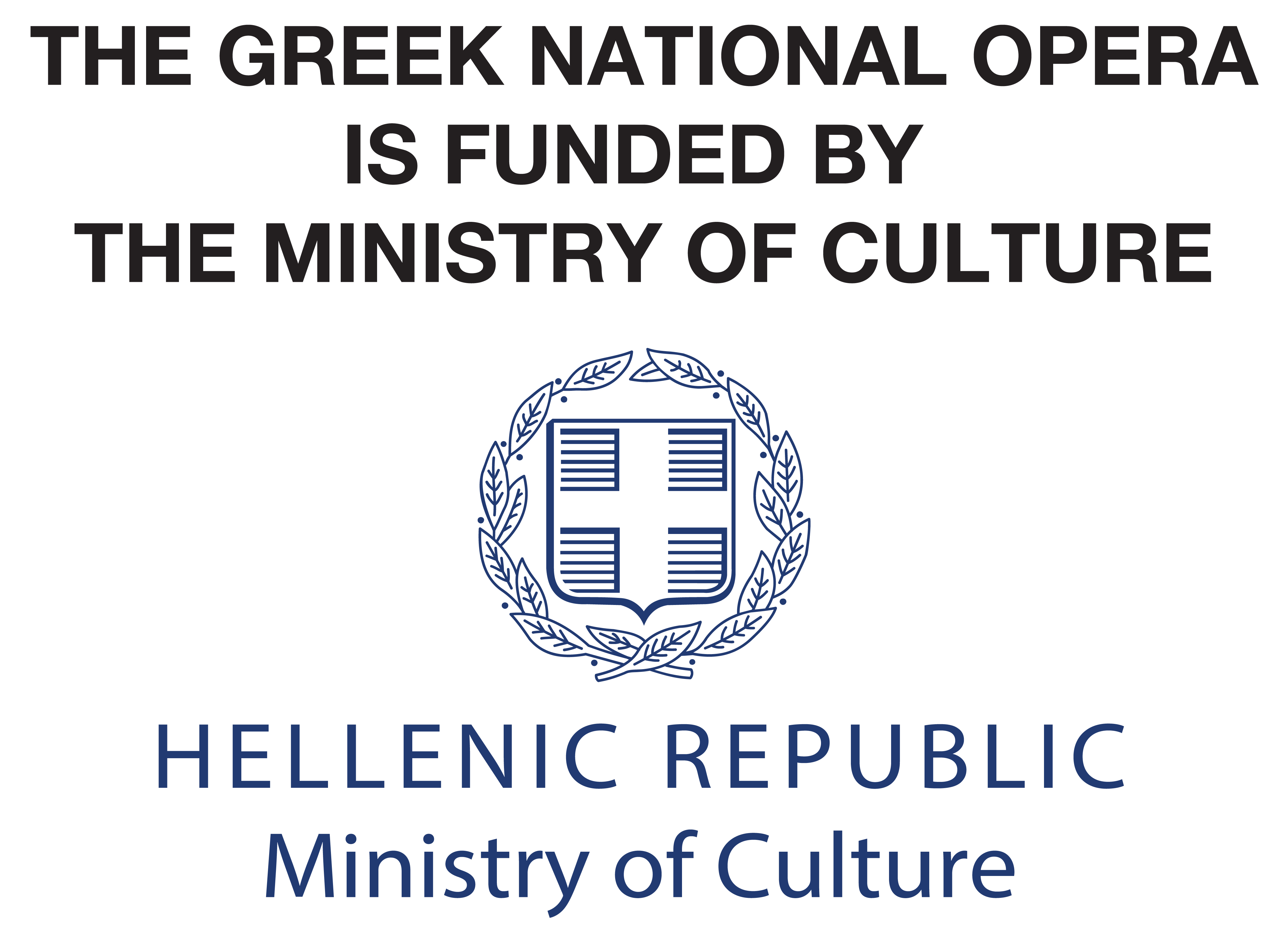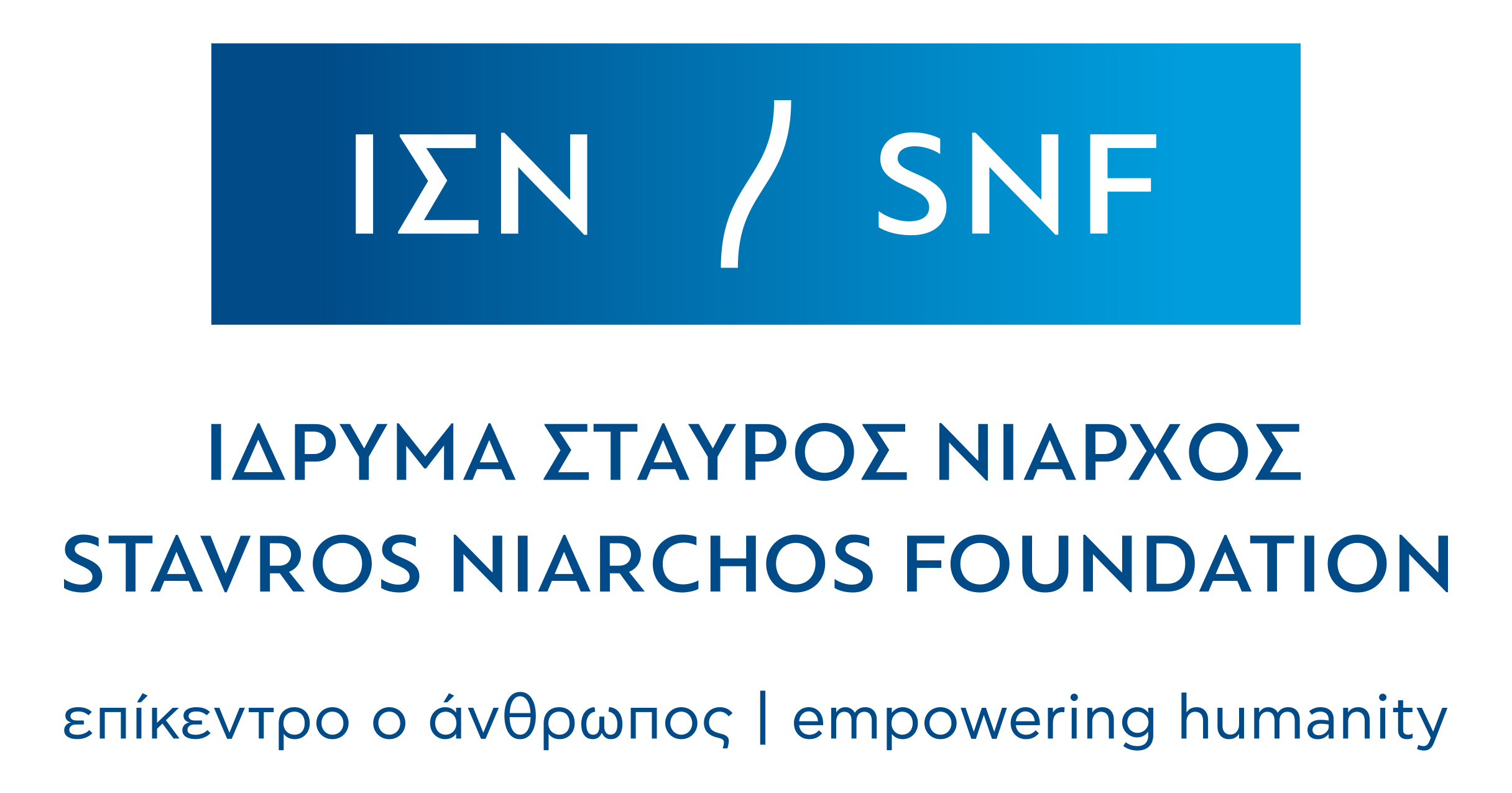
Alternative Stage Founding Donor

Major Sponsor of the Greek National Opera

The contemporary opera The Fall of the House of Commons, a futuristic and bold work about the mysterious co-existence of human and artificial intelligence, will be presented at the Alternative Stage of the Greek National Opera at the SNFCC for five unique performances, on 3, 4, 8, 10, and 11 May 2025. With music composed by Orestis Papaioannou, based on a concept and dramaturgy by Alekos Lountzis, and with a libretto penned by Alekos Lountzis and Orfeas Apergis, this work brings to life a fantasy world, a reality not far from our own, inspired by Edgar Allan Poe's archetypal short story The Fall of the House of Usher, through the directorial perspective of Alexandros Eflkidis. The six-member instrumental ensemble will be conducted by Michalis Papapetrou.
A contemporary opera about the �broken ecosystem of postmodern cities�, as envisioned by its creators. The inner space of modern apartments increasingly reminds us of a reflection on a turned-off high-definition screen, where human and artificial intelligence coexist in a mysterious way. All the goods are home delivered, relationships are formed and break indoors, and fantasies sound like phone ringtones.
Conversing with Edgar Allan Poe's archetypal story The Fall of the House of Usher, where both the house and its residents are merged in a closed circuit, the work tracks the sounds produced by the life inside and outside the walls of a typical contemporary apartment. The self-referential universe of the couple living in it exudes a spectral balance. A dominant position is held by the android supervisor Erika_7, who's always available to rewrite the house's memory and offer solutions to the symbiosis crossword puzzle.
Poe's dramaturgical conversation is used to contrast the sophisticated and the kitschy, but also to functionally combine musical idioms ranging from the repository of classical melodrama to various styles of postmodern music.
Regarding the work's concept and dramaturgy, Alekos Lountzis, who co-wrote the libretto with Orfeas Apergis, notes: �The opera seeks to transfuse the sense of asphyxiation found in the original story into the standardized present, and to project a double-edged sensation onto the only material that is abundantly available to us, digitalized and tangible - untouched or corrupted by abuse; in the common here and now weaved by the imminent claustrophobic universe of our world�.
The plot unfolds over five scenes, featuring a broken couple (He and She), a visitor (Danae) who is also the double of the absent female partner, and an omnipresent and all-watching digital assistant (Erika_7) that records the memory of the House, the wrath of its residents, and the symbiotic crossword. The confinement in a space where one's complete needs and pleasures can largely be satisfied (ranging from a 19th-century castle with its servants to the endless digitalized services of the 21st century) gradually reaches its limitations, the threshold of fulfillment and/or that of (self)destruction.
Orestis Papaioannou's musical composition draws upon a wide range of ideas, with a focus on the hybrid trends in 21st-century vocal music, while the orchestration, designed for a small ensemble reminiscent of a jazz band (trumpet, saxophone/clarinet, trombone, percussion, synthesizer, double bass), serves the work's urban themes and incorporates jazz elements. Orestis Papaioannou remarks: �The Fall of the House of Commons adopts a pluralistic and eclectic musical approach, which reflects the thematic contrasts present in the libretto, such as present vs past, human vs artificial, modern vs traditional, and order vs chaos. Through this logic, both dichotomies and blends of seemingly opposing elements emerge, such as tonal and atonal language, as well as speech and singing, creating musical or expressional hybrids. Thus, the work does not follow a continuous form; instead, it is divided into smaller musical episodes - �tableaux� - that deliberately interrupt its flow.�
The stage direction of the opera, which unfolds into a box-like apartment, bears the stamp of Alexandros Efklidis. The director attempts to highlight both the distance from and the closeness to a futuristic world that becomes part of contemporary reality. As he remarks: �In this work, we focus on our relationship with the new age, our daily life in a new world, where people and machines co-exist and interact with one another. The House of Usher, in our version of the story, transforms into a common house. The house of ordinary people who lead predetermined lives inside identical apartments. A life of confinement and loneliness.�
The striking futuristic set and costumes were designed by Giannis Katranitsas. Marios Gampierakis and Chrysoula Korovesi handled the video designs, while Christos Tziogkas created the lighting design.
The cast features Chrissa Maliamani (Erika_7), Georgios Iatrou (He), Miranda Makrynioti (Danae), and Alexios Zervanos (Debater).
Michalis Papapetrou conducts the six-member instrumental ensemble consisting of: Kostas Tzekos clarinet, saxophone, Spyros Arkoudis trumpet, George Krimperis trombone, Haris Pazaroulas double bass, Kazuyo Tsunehiro percussion, Frixos Mortzos keyboard
The production was first presented in June 2023 as part of the Athens Epidaurus Festival.
Speech William A. Everett
Falling Houses: Love, Death and the Sung Power of Memory
Saturday 3 May 2025
GNO VIP lounge
Starts at: 19.00
Free admission
As a prelude to the two operas being performed this weekend, this multi-media presentation explores how a symbiotic union of music and drama heightens the underlying themes of love, death and memory in Gaetano Donizetti and Salvadore Cammarano's Lucia di Lammermoor (1835) and Orestis Papaioannou, Alekos Lountzis and Orfeas Apergis's The Fall of the House of Commons (2022, rev. 2025). The talk will also examine two musical theatre works with similar sentiments, the operetta Maytime (1917) and the drama musical Rebecca (2006).
William A. Everett is Curators' Distinguished Professor of Musicology Emeritus at the University of Missouri-Kansas City Conservatory (USA). He has published widely on opera and musical theatre. He has written biographies of operetta composers Sigmund Romberg and Rudolf Friml, and his latest book is The Year that Made the Musical: 1924 and the Glamour of Musical Theatre (Cambridge University Press, 2024).
The production �The Fall of the House of Commons� is part of the GNO Alternative Stage's unit of programming titled �MUSIC THEATRE DAYS�, which falls under the ACT �FESTIVAL EVENTS OF THE GNO ALTERNATIVE STAGE 2024-2025� � (MIS 6002467) with code 2024��08570049 (Priority: �Fostering regional social cohesion through the enhancement of mechanisms and infrastructure to support employment, education, health care and socioeconomic inclusion� of the programme �Attica 2021-2027) and is co-financed by the European Regional Development Fund (ERDF) and National Resources.

Fully accessible performances of the The Fall of the House of Commons
The performances of The Fall of the House of Commons will be fully accessible on the 4th and 11th of May 2025, providing an inclusive audiovisual experience for all audiences in collaboration with ATLAS E.P. In this context, there will be designated seats for individuals who are deaf or hard of hearing and use Greek Sign Language, places for those who rely on captions (CAPS) covering the entire audio channel, as well as seats for individuals who are blind or have limited access to the visual channel of communication and use the audio description (AD) service. Guide dogs for the visually impaired will also be permitted.
Audience members who wish to use the accessibility services are requested to purchase their tickets at the GNO Box Office, over the phone at 2130885700, or via email at . If you need assistance with your reservation, you can also contact ATLAS E.P. at 6993507553 or via email at .
The full accessibility services for this production are funded by the Ministry of Culture, as part of the project�SUB.1.1.6 Attracting 65+ individuals and persons with disabilities to events of the Greek National Opera�. This project is implemented as part of the �Greece 2.0 - National Recovery and Resilience Plan� with funds from the European Union-NextGeneration EU.














